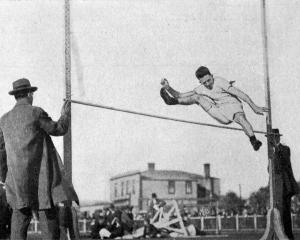
That measure, it is to be admitted, does not provide for a perfect solution of a social problem of great complexity and considerable delicacy. If a perfect solution is attainable, it is at lease certain that it cannot be promptly applied.
The proposals contained in the Social Hygiene Bill are, however, of such a character that they can be put into effect without delay to cope with a serious menace not only to the public health of the community at the present time but even to the welfare of the race in succeeding generations. The measure represents an honest endeavour to combat a grave evil which has to be grappled with here and now. It is absolutely fatuous to suggest that it is by reliance on voluntary submission to treatment on the part of persons suffering from venereal diseases that this evil can be adequately combated.
The State does not deal in such a gingerly fashion with infectious diseases which, serious as they are, do not carry with them the terrible consequences that are associated with the occurrence of venereal diseases. And the protest against the exercise of compulsion is exceedingly hollow at a time when, in the national interest, compulsion is exerted in scores of different ways in which it has not previously been employed. The objection that personal liberties and private rights will be infringed if the Bill is put into law is one which in existing circumstances should carry very little weight.
It amounts to an argument that persons who have been infected with these diseases should, unless they voluntarily submit to treatment, be licensed to act as a source from which the scourge should be spread. It is an argument which involves a heavy demand on the patience of those who realise the extent to which the race is already infected with venereal diseases and the appalling nature of the penalty which unborn children may be required to suffer if the evil is not effectively brought under control.
Canned rabbit preferred
A Dunedin business man who has just returned from a visit to Otago Central states that he had a rather surprising side-light on the agitation about the increased cost of living. As everyone probably knows, the Otago Central has more rabbits to the square mile than any other district in the dominion. The rabbits are so numerous that rabbit-canning factories are fully occupied, in the season, at both Alexandra and Cromwell. Residents in Alexandra, Clyde, or Cromwell can, however, with very little trouble, shoot or trap rabbits within, say, a half mile of the centre of any of these towns. That being so, the visitor said his surprise had resulted from the large demand in the Central towns for the canned rabbit, at about 1s 10d for a 2lb tin. Of course, these canned rabbits are cooked and are ready for eating. Some people would apparently sooner cry out about the high cost of living, and buy cooked rabbits, than take the trouble to kill, skin, and cook the rabbits themselves. — ODT, 22.10.17.
• COPIES OF PICTURE AVAILABLE FROM ODT FRONT OFFICE, LOWER STUART ST, OR WWW.OTAGOIMAGES.CO.NZ












